It’s an ingredient that used to be featured in our favorite astringents of yore: alcohol. The scent of alcohol is probably the first thing you remember when you think about those old-school toners that promised to shrink pores and tighten the skin.
Nowadays, though, people seem to be divided on whether alcohol in skincare is always harmful, or whether it can actually be a beneficial ingredient.
What is Alcohol?
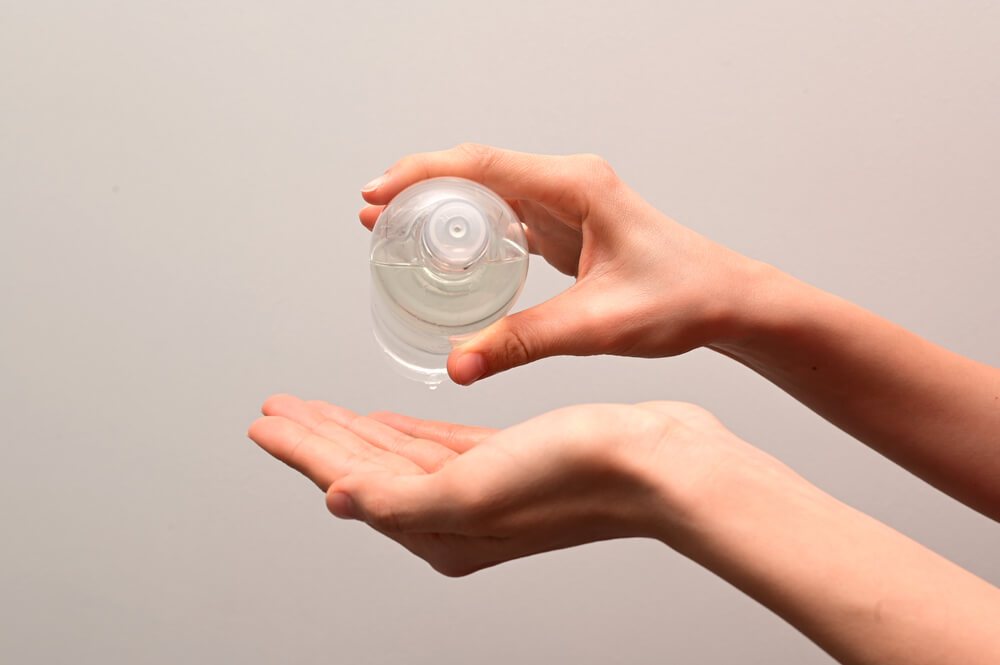
Alcohol refers to any carbon-based compound that contains an OH or hydroxyl group. There are many different kinds of alcohols, such as:
- Glycols
- Glycerin
- Cetyl alcohol
- Ethanol
You may recognize alcohol as the main ingredient in your hand sanitizers when you can’t wash your hands. It’s also present in many of your cosmetics, such as your skincare and haircare products.
Here’s the thing:
Not all alcohols are bad. But when it comes to skincare, alcohol usually means a very specific thing, and that’s simple alcohols.
Alcohols: The Good
First off, let’s distinguish the good from the bad. There are different kinds of alcohol, and not all of them are harmful. Some of them are even beneficial in skincare.
These “good” alcohols are known as fatty alcohols. These alcohols are non-drying and non-irritating. Some examples of fatty alcohols are cetyl alcohol, stearyl alcohol, and cetearyl alcohol.
Fatty alcohols, as their name implies, are derived from fat and have a host of skin benefits, which range from thickening a product to keeping moisture in the skin.
Vitamin E and retinol are classified as alcohols as well, and we all know how great they are for the skin. Another beneficial alcohol is lanolin alcohol, which comes from wool. When formulated correctly, this type of alcohol can help heal wounded skin.
Examples of Fatty Alcohols in Skincare:
- Cetyl alcohol: This type of alcohol is derived from coconut oil. Those sensitive to coconut oil might want to avoid this ingredient.
- Stearyl alcohol: This alcohol comes from stearic acid, which is a fatty acid that occurs naturally in coconut oil or palm oil.
- Cetearyl alcohol: The mixture of cetyl and stearyl alcohol is called cetearyl alcohol. It’s a white, waxy substance that is often used to stabilize and thicken creams and ointments.
Alcohols: The Bad
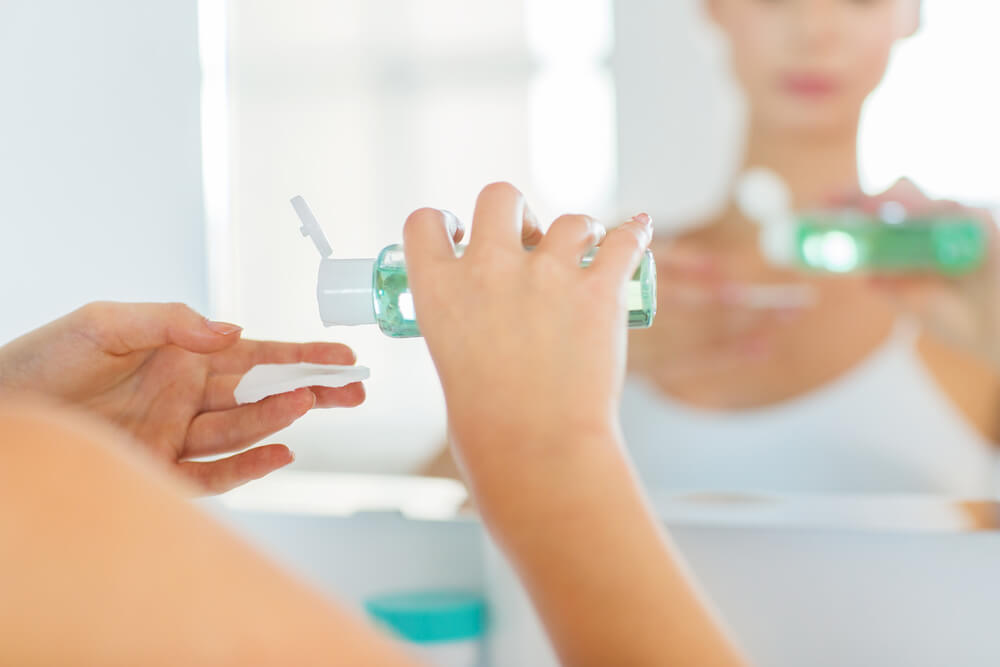
Ethanol, SD alcohol, ethyl alcohol, or isopropyl alcohol are all simple alcohols. These are typically what we think of as “bad” alcohols.
These alcohols are volatile and evaporate quickly. They can also have a dehydrating effect on the skin. These types of alcohols can be typically be found in toners, gel moisturizers, and sunscreens.
Examples of Simple Alcohols:
- Ethyl alcohol: This is also known as grain alcohol or ethanol.
- Denatured alcohol or alcohol denat: Denatured alcohol is ethanol with an extra ingredient (such as methanol) so that people don’t drink it.
- Isopropyl alcohol: This is what you know as rubbing alcohol. It is used in a variety of skincare and haircare products.
Benzyl alcohol, while neither a simple alcohol nor a fatty alcohol, may also be considered “bad,” depending on your skin. Known as an aromatic alcohol, it’s primarily used as a preservative to keep products from becoming contaminated by microorganisms. If you’re not sensitive to it, though, it’s not harmful, and can possibly offer antioxidative effects.
Are bad alcohols actually bad for the skin?
The answer to this question is that there is no definitive answer. It all depends on the product’s formulation and how your skin reacts to alcohol. Some products with alcohol may still be beneficial to the skin, while others may suck all the moisture out of your it. Whether alcohol is good or bad all depends on your skin and how you want your skincare to work.
Even the categories of “good” and “bad” alcohols aren’t black and white: some products with “bad” alcohols can work great, while others with “good” alcohols may not work for you.
We wish we had a better answer, but the best way to know if a product with alcohol will work for you is to know your skin.
Those with normal skin types probably won’t be harmed by a well-formulated product with alcohol. Those with oilier skin types might prefer products with alcohol to cut through sebum or for a lighter feel on the skin. Those with sensitive, dry, or dehydrated skin, or those with skin conditions such as eczema or rosacea, might want to avoid products with alcohol to prevent further dehydration or irritation.
If Alcohol Can Be Bad for the Skin, Why is it in So Many Products?
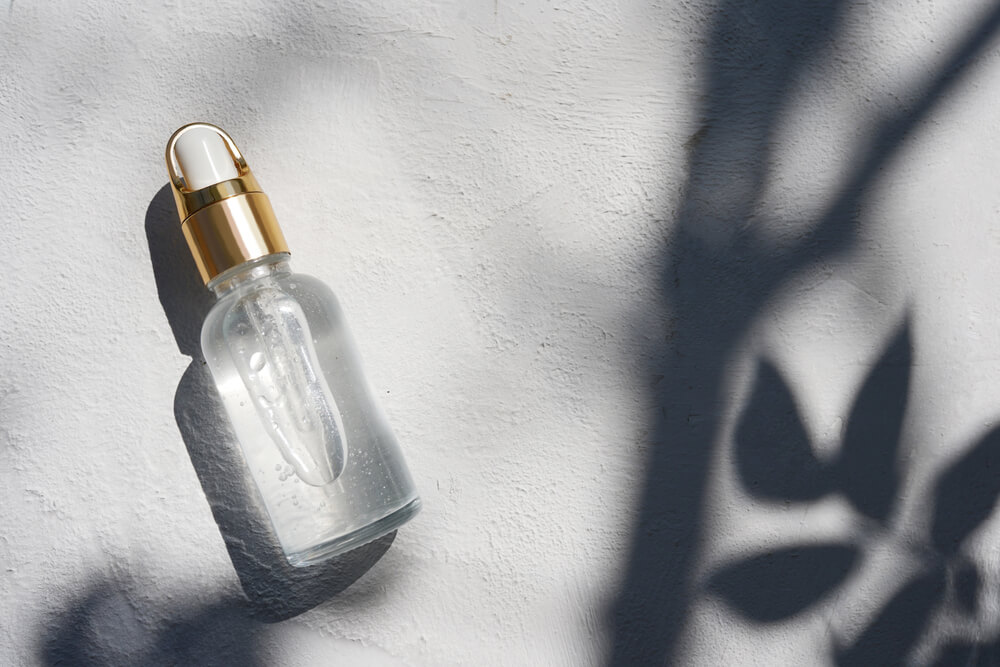
There are many reasons why a product might be formulated with alcohol. Even if alcohol can have a dehydrating effect on the skin, it might also lead to cosmetic elegance or an easier application.
It Can Be Used As a Cleaning Agent
We all know the types: astringent toners (yes, the ones from your teenage years) that promise to cut through oil and unclog pores. These products often aim to dissolve dirt and penetrate oil buildup in the skin.
It Can Be Used As a Preservative
A high concentration of alcohol may act as a preservative in a skincare product. The antimicrobial properties of alcohol can prevent products from becoming contaminated. However, products with a high enough alcohol content to be used as a preservative are becoming less and less common.
It Can Help Improve a Product’s Application
Because of alcohol’s volatility (that is, its ability to evaporate), it can help a product apply better. This means that a product might spread easier or be absorbed quicker into the skin.
It Can Give a Product a Cooling Effect
Alcohols evaporate quickly, so when you apply a product with alcohol to your skin, it can have a cooling effect. This is common in gel moisturizers and toners with alcohol.
It Can Make a Thick Product Feel Lighter
Alcohol can help a product spread easier on the skin, making it feel weightless. You might find alcohol formulated for this purpose in creams or sunscreens.
It Can Enhance a Product’s Penetration
Alcohol in products can help a product penetrate deeper into the skin, making active ingredients such as vitamin C or retinol more effective.
It Can Be Used During Peels
Alcohol can be used to cleanse the skin during chemical peels to make sure the active ingredients penetrate the skin deeper.
What If My Favorite Product Contains a Bad Alcohol?
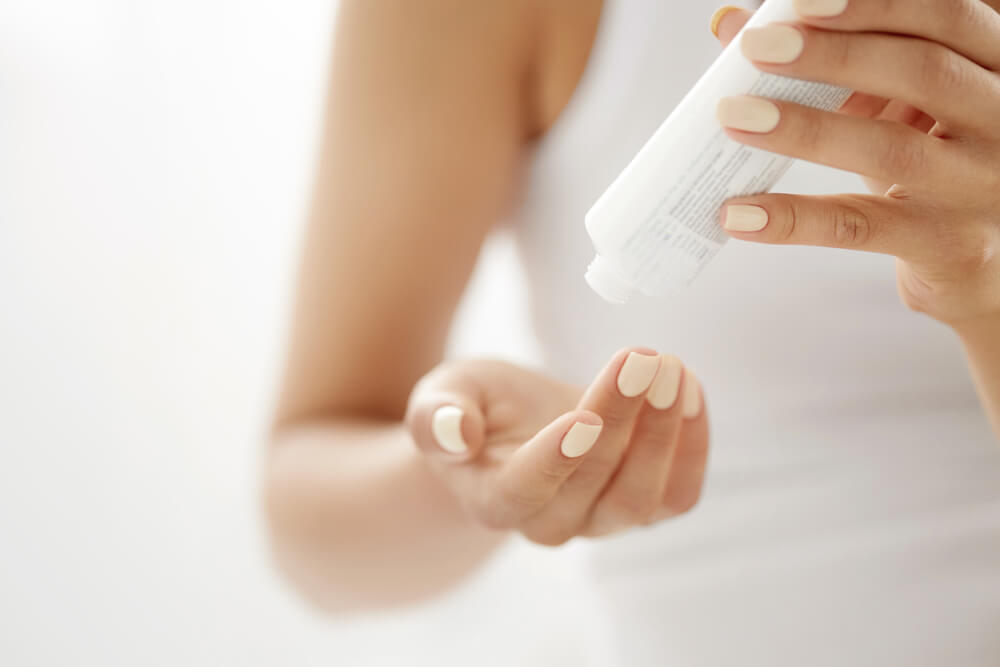
It’s your favorite product for a reason, so even if it has alcohol, you shouldn’t immediately toss it out. If it doesn’t make your skin feel tight or dehydrated, and if it doesn’t make your skin overproduce oil, then you’re good! The important thing is that it works for you.
If you’re noticing some adverse effects, though, you might want to switch it out for an alcohol-free alternative.
Why Should I Avoid Simple Alcohols?
While simple alcohol may have positive effects on a product’s effectiveness and cosmetic elegance, the negative effects it can have on the skin may not be worth it. If you’re using a product with alcohol and it’s not working out for you, here are some reasons why:
Products With a High Alcohol Content Can Dehydrate Your Skin
Alcohol can destroy your skin’s microbiome, disrupt your skin barrier, and weaken your skin’s ability to replenish itself. When it comes to moisturizers, opt for ones without “bad” alcohols such as ethanol or denatured alcohol. On the other hand, moisturizers with fatty alcohols such as cetearyl alcohol will help lock moisture into your skin.
Products With a High Alcohol Content Can Exacerbate Oiliness
If you’re using products with alcohol to combat excessive oil, you might want to rethink your skincare strategy. Products with a high alcohol content may give you a matte finish when you first apply them, but long-term use may actually exacerbate oiliness. This is because as alcohol strips your skin of its moisture, your skin may try to compensate for the dehydration by producing more oil. If you have oily skin and products with alcohol are making you more oily, try switching to a moisturizer without ethanol, such as the Celestolite Venus Day Cream.
Products With a High Alcohol Content Can Worsen Irritation
Products with alcohol can disrupt the skin’s protective barrier, which can leave your skin open to irritants. Not only is alcohol itself an irritant, but it can increase the penetration of other ingredients such as fragrance or essential oils, which can lead to even more irritation.
Alcohol in Your Skincare Products
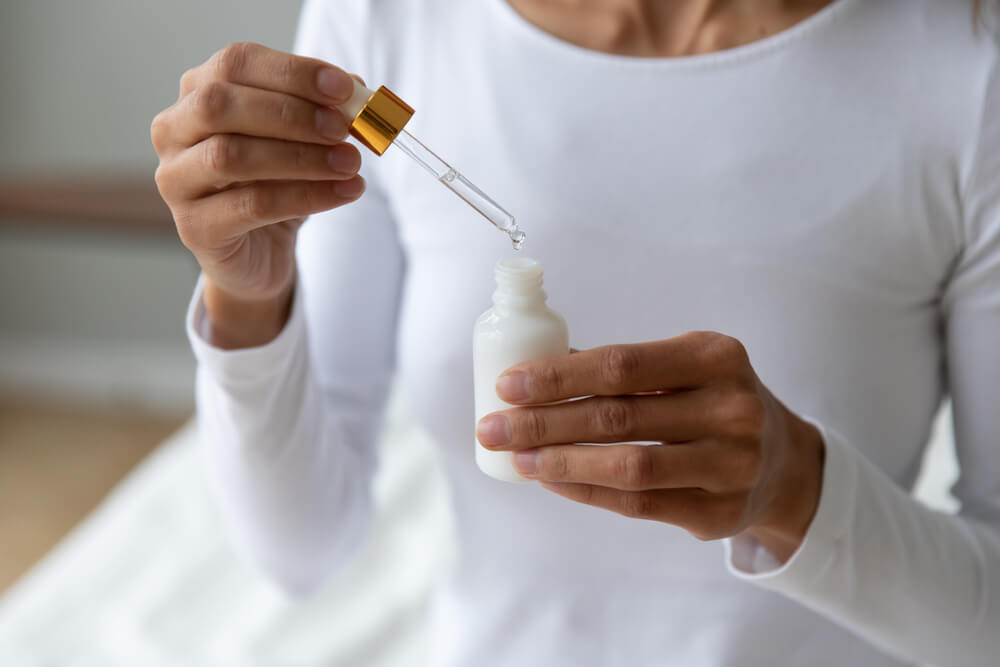
Both simple and fatty alcohols are present in many different kinds of skincare products, with a wide array of effects. Here are some examples of alcohols in your skincare products:
Sunscreens
Alcohol plays a big role in today’s sunscreen formulations. No longer is sunscreen the thick white paste of your childhood summers. Nowadays, sunscreens are much more cosmetically elegant, and that’s thanks in large part to alcohol.
Many sunscreens use alcohol as a solvent to improve its application and lead to a more lightweight feeling on the skin. Alcohol also helps sunscreen absorb quicker. You might also find fatty alcohols in your sunscreen, which help stabilize the sunscreen formula and help your skin retain moisture.
If a sunscreen is formulated well, then the alcohol shouldn’t bother your skin much. But if you still need to counter its dehydrating effects, make sure you’re wearing a good moisturizer underneath.
Toners
If you’re using an old-school toner or astringent, then there might be a high concentration of alcohol in it. Toners or toner pads with active ingredients such as salicylic acid might also contain alcohol to help with product absorption.
If you want to avoid alcohol but can’t help using a toner after you cleanse, there are now many alcohol-free options on the market, such as the Celestolite Toner. These toners hydrate and nurture the skin after cleansing and prep your face for the rest of your skincare routine.
Gel Moisturizers
Many gel moisturizers contain simple alcohols to help with product application and absorption. Gel moisturizers’ light texture is also thanks in part to simple alcohols.
Pay attention to where alcohol is listed in the ingredients list: the higher up on the list, the less moisturizing the product will be. To combat alcohol’s dehydrating effect, gel moisturizers may contain humectants (ingredients that attract water to the skin) such as glycerin or hyaluronic acid.
Creams
Many moisturizing creams will contain fatty alcohols to thicken the product and help the skin retain moisture. Cetyl alcohol, stearyl alcohol, and cetearyl alcohol all have emollient and occlusive properties, which help lock moisture into the skin and prevent transepidermal water loss.
Transepidermal water loss occurs when water from the skin evaporates into the air and can be exacerbated by products with simple alcohols. Many creams don’t contain simple alcohols, though, and serve the main purpose of moisturizing and nourishing the skin.
Serums
Serums deliver a powerful dose of ingredients into your skin. Many hydrating serums won’t contain simple alcohols, but will have fatty alcohols to stabilize the formula and further hydrate the skin.
Some serums, such as vitamin C serums, may contain alcohol to help with product absorption. This is a double-edged sword, though: while the presence of alcohol can make ingredients more effective, it can also lead to more irritation, especially when it comes to powerful active ingredients such as vitamin C.
Alcohol: The Bottom Line
Not all alcohols are created equal. Different alcohols will have different effects in products and on your skin. There are “good” alcohols and “bad” alcohols, but even that distinction isn’t clear-cut. Generally, simple alcohols (what we think of as alcohol in skincare) can be harmful to the skin, while fatty alcohols are beneficial.
If you’re committed to an alcohol-free skincare routine, luckily there are many products to suit your needs. But if you find a product that works for you (even if it has alcohol in it!), then keep using it. Pay attention to your skin and what it needs. If you have normal skin that isn’t bothered by alcohol, consider yourself lucky. If you have sensitive or reactive skin, though, you might want to pay attention to ingredient lists and avoid alcohol (that is, simple alcohols) in your skincare.



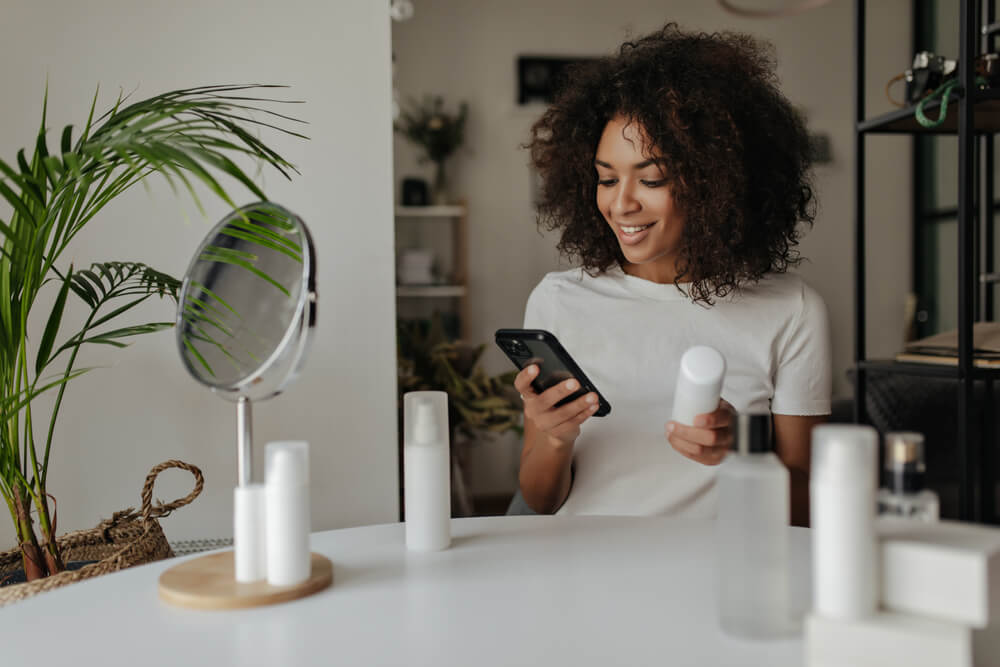
0 comments on “Is Alcohol in Skincare Always a Bad Thing?”